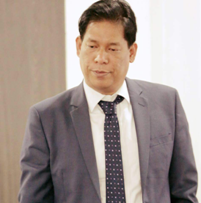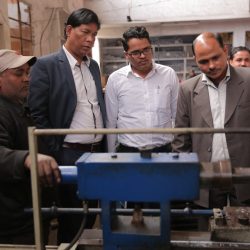COVID: Optimise in every possible way
In this article series we ask leading energy management experts about the impact of coronavirus.
Debajit Das, India
National Project Coordinator, Energy Efficiency Market Transformation Project, UNIDO

At UNIDO we are particularly worried about the micro and small businesses (MSMEs) in India. There are an estimated 40 million MSMEs scattered throughout the country and most of them need some form of emergency financial assistance. To get a clearer understanding of the situation, we distributed a survey to industrial small businesses to take stock of their perceived challenges, expectations and plans for recovery and revival. What we found was that cash flow and the payment of employees is currently among their biggest concerns. Even though production has declined they still need to pay salaries. It’s a real challenge for these businesses as most don’t have a financial buffer.
To help MSMEs navigate their way to restart, recover and revitalize their business, UNIDO, with input from its partners, put together a knowledge and collaboration platform called Build Back Business from Crisis (B3C). One of the key recommendations featured on the platform is the implementation of energy efficiency standards and practices. Unfortunately in India, small businesses often view energy as a necessary fixed cost in their production process. They don’t recognize the cost saving potential. So we are trying to use this moment as an opportunity to change this mindset. What we are advising right now is to optimise in every possible way. You don’t have to necessarily adopt costly energy efficient technologies, but you should at least try to optimise your production processes with operational best practice and technologies that require low or nil investment. For example, audit your current energy use and see if there are ways to cut back. Can you control the level of heating, cooling, and ventilation in your building? Can you improve maintenance on heating, ventilation, and air conditioning systems by changing or cleaning air filters to make them run more efficiently? Can lighting be better focused where workers need it and in the amount that they need? Can machines be turned off when not in operation? There are a lot of things MSMEs can do right now, in house, with their own expertise, which may be critical to surviving this current crisis.
Debajit (second left in first photo) asses the energy conservation opportunities of a forging and casting process at an SME in the Indian state of Punjab. The COVID lockdown in India has been especially hard for small business, poorer Indians and migrant workers. In May the Indian Government announced plans to spur small and medium businesses as part of a $266bn (£216n) economic package. Learn more about how UNIDO’s Industrial Energy Accelerator is supporting entrepreneurs and innovation in India’s SME industrial sector.
Innovation in a time of COVID. The COVID-19 pandemic will change the global industrial sector forever. In this article series we ask leading energy management experts about how the virus has affected their country’s industrial sectors and what businesses could be doing to prepare for an uncertain future.



